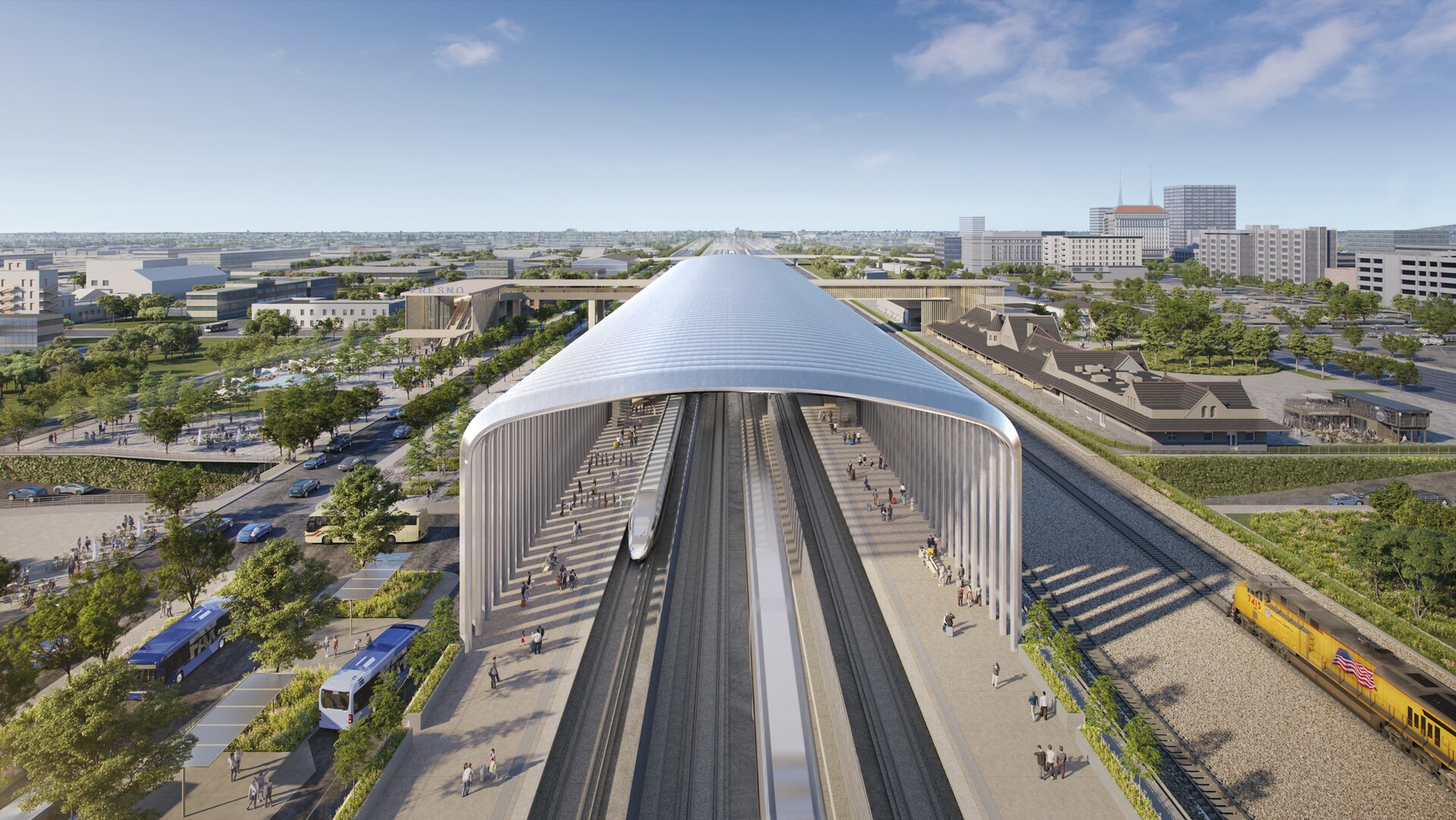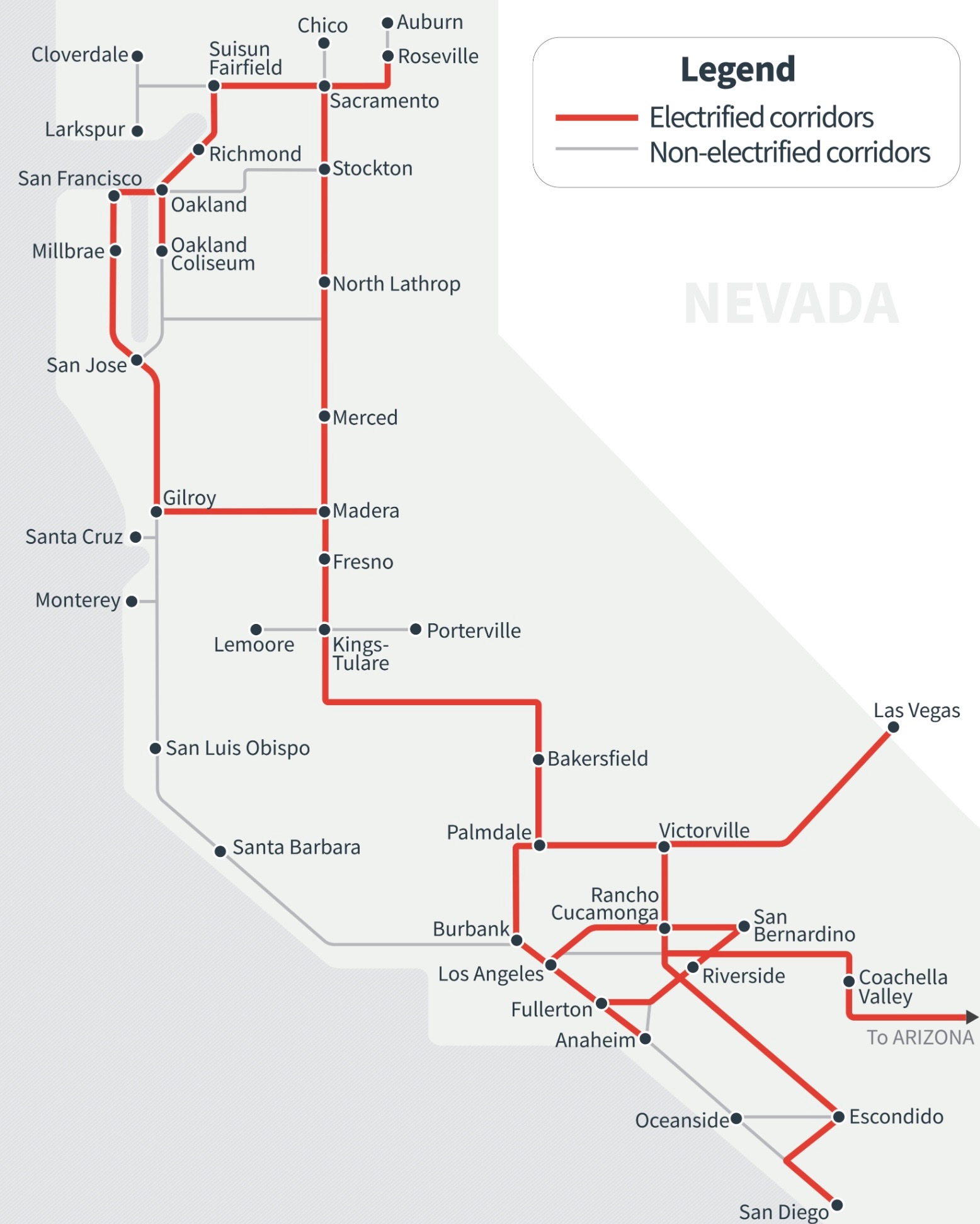
California has published its plan to create a fully interconnected mass transit network by 2050.
As well as improving mobility throughout the state, the plan aims to create 900,000 jobs and achieve net-zero carbon emissions.
Governor Gavin Newsom announced the plan yesterday after joining local leaders and workers to mark the start of the track-laying phase for California high-speed rail, which will serve as the backbone of the state’s rail network.
The aim is to have a rail system that works on the intercity, regional and local scales and interconnects with road and air systems.
The plan envisions a direct capital investment of $310bn from local, state, federal, and private funding, with an estimated economic return of over $540bn by 2050.
“California is building a clean transportation system for the future,” Governor Newsom told reporters.
“Our vision is simple: by 2050, every Californian should be able to choose rail as a way to get to their destination, near or far. Our rail plan is ambitious, but as the world’s fifth largest economy bursting with talent and innovation, we’re ready to take on this challenge.”

The target is to increase the number of miles travelled by train in the state from 2% of the total to 20%, and in so doing to improve public services in poorer communities – especially for those people without access to a car.
California State Transportation Agency estimates that, if it achieved this aim, almost 200 million daily passenger miles would be taken off the road network.
Electrified high-speed rail systems currently under construction will form the backbone of the network.
The plan prioritises projects to complete high-speed lines and connect them with intercity and regional rail.
This would begin with the existing high-speed link between San Francisco Bay and Los Angeles through the Central Valley.
In June 2024, the first self-powered, zero emission passenger train in North America arrived in San Bernardino County and is scheduled to enter service later this year.
In August, Caltrain launched California’s first electric rail system on the San Francisco Peninsula, and full electric service along the San Francisco-San Jose corridor began in September.
- Subscribe here to get stories about construction around the world in your inbox three times a week
Further reading:
Comments
Comments are closed.











Connect Phoenix to LA and San Fransisco!! Also Phoenix to Las Vegas!
The people will use it. And it gives many a job!